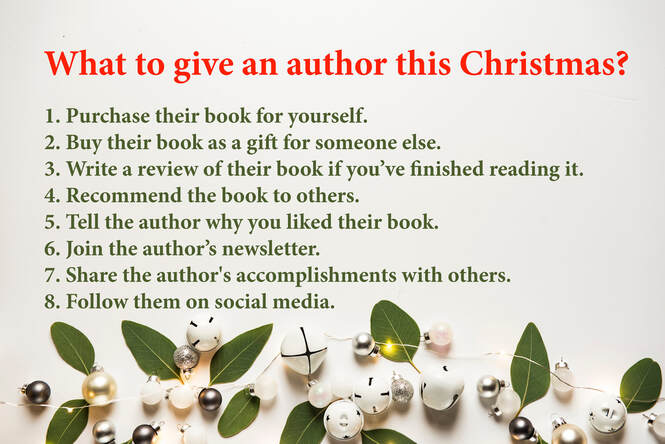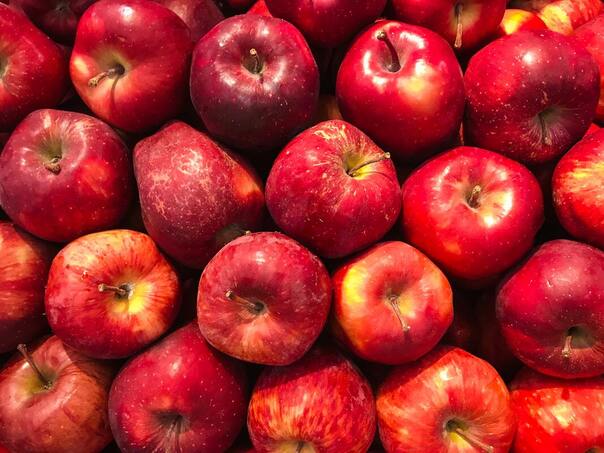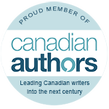|
As the holidays approach, I often get the question “What would you like for Christmas?
A few years ago I reached a stage in my life where I no longer knew what I wanted as a gift, or if I even wanted anything at all. I value the holidays as a time to unwind and catch up with family and friends. When the question of gifts comes up, I usually search my brain to come up with something that is not too expensive. I want to help the giver and save them the trouble of figuring it out on their own. As a new writer, I realized I might need something that I hadn’t thought of before, something that could help me become a better writer. I went to the internet for ideas. Here are some funny ones that I found:
We are all different, and some of the items found on general advice pages and forums on the internet might be exactly what some authors are looking for. I decided, however, to come up with my own list of what I think every author needs. Bonus: Some items are completely free.
I hope you enjoy the practical ideas I came up with so far. Holidays are a time for fun, and no matter how big or small the gift is, the author will appreciate it.
0 Comments
A sample household requires only one kettle. A prospective buyer will review the available options in a store and buy a model best suited to their needs. Once a kettle is selected, the rest of the available makes and models will probably be ignored for many years to come.
Furniture is similar. After some research and checking out a couch at a store to see if it’s comfy, a buyer will make a decision and then a purchase. Car shopping is the same; a buyer might have a favourite brand, but there is an expectation that such an expensive purchase will last for a long time. These types of purchases often have tight competition, because the manufacturers and producers need to convince the buyer to choose their product, and not a product made by someone else. An opportunity to try to convince the buyer might not come again for years. Books are more like fruit. A buyer may have certain favourites, but more often than not, they will still purchase other fruits regularly. A grocery store customer will look at the selection of fruits available and choose one that looks appealing. Price and freshness might be a factor in their decision; however, information about who grew it and where rarely make an impact. A buyer will also make fruit purchases often, in quantities higher than one, and will do so many times over the years from different suppliers. A reader may also have favourite books, genres and authors, but, an avid reader will look outside these boundaries and pick other books as well. Purchasing one book does not prevent the reader from purchasing another one by a different author or from borrowing more books from a local library. This means that there is no real competition between authors and they can, and should, work together on honing their writing skills and strive to bring quality work to their readers. I enlisted multiple beta readers for my manuscript in 2021, but this was the first time I had the chance to be a beta reader for someone else.
Jeff Farrell reached out to an online community I’m a part of asking for feedback from female beta readers. I jumped at the opportunity to gain some experience with beta reading and critique. It was exciting to read something that had never been published before. As I waited for the manuscript to be sent to me, anxiety kicked in. What if I didn’t like the book at all? What if I didn’t feel it was up to standard? What feedback would I offer? When I received a copy of Bad Blood, I opened it up at lunch and quickly became so immersed in the story that the thirty minutes flew by without me noticing. Why should writers do beta reading? As a writer, you have little opportunity to be part of the book development process outside of your own work. Your characters are great, you developed them well, the dialog is perfect — until a beta reader gives you feedback and shatters that view. When you read someone else’s work, there’s an emotional separation from the story. Suddenly you start thinking like a writer, and that’s when your editor's voice begins to chime in about the pacing, flow and plot. You are able to point out issues and offer suggestions, reinforcing what you know and learned during your own writing process. It makes you a better writer. Seeing other work in progress and in a different style than your own gives you an opportunity to reflect about your own style and voice. Reading and making notes refreshes the knowledge you have, thus imprinting it more strongly in your mind. I didn’t realize how much I’d learned during my publishing journey thus far, but being a beta reader helped me see how much knowledge I’d gained, and now I know that Book 2 of Sābanto will be of much better quality right from the start. It also helps others become better writers. There is power in experience. You are not the first person to write a book, nor will you be the last. Other authors have helped guide you, and now that you’re getting your first book out the door, the roles are reversed and you have an opportunity to help new authors who are still on their journeys. Helping others creates community and improves the quality of self-published books. Here is a brief review of the book: Alex, the main character and a narrator, feels like a failure. He’s lost his job as a journalist, and with nowhere to go, he’s remained in the place he knows best, Caracas, Venezuela. With his money running out, there is nothing else to do but to spend his time drinking at a rooftop bar called Mirador. He could go back home to Ireland, but some wounds should never be opened again. When he learns, however, that his brother has died in Caracas, he begins a quest to learn the truth about his death. From the very first lines of the book, the reader is hooked. You start reading and they start shooting. It leaves you hungry for more. Alex is navigating the corruption of the dictatorship-led country to gather information, but as a gringo (a white man), he is facing a wall of distrust and disinformation. He seeks help from a local, a reporter Gina, who senses there’s more to the story than simply a plastic surgery gone wrong. She takes a risk and jumps at the chance to fight the regime. Based on actual events and Jeff’s personal experiences during the time he spent in Venezuela as a journalist, the book provides detailed descriptions of Caracas and its people, transporting the reader there with ease. The author also very accurately describes the socio-political scene in a country that is deteriorating due to corruption, authoritarianism, crime and poverty. His clever use of Spanish words in the text is a constant reminder of where the book takes place and the surrounding atmosphere of this South American country. I’d recommend this book to anyone looking for a quick read with lots of action, and those for whom justice and social equality are worth fighting for. The book is currently on pre-order and is expected to be available in 2023. Website link: https://www.jefffarrellonline.com/ https://www.amazon.com/Bad-Blood-Alex-Regan-Thriller-ebook |



 RSS Feed
RSS Feed



